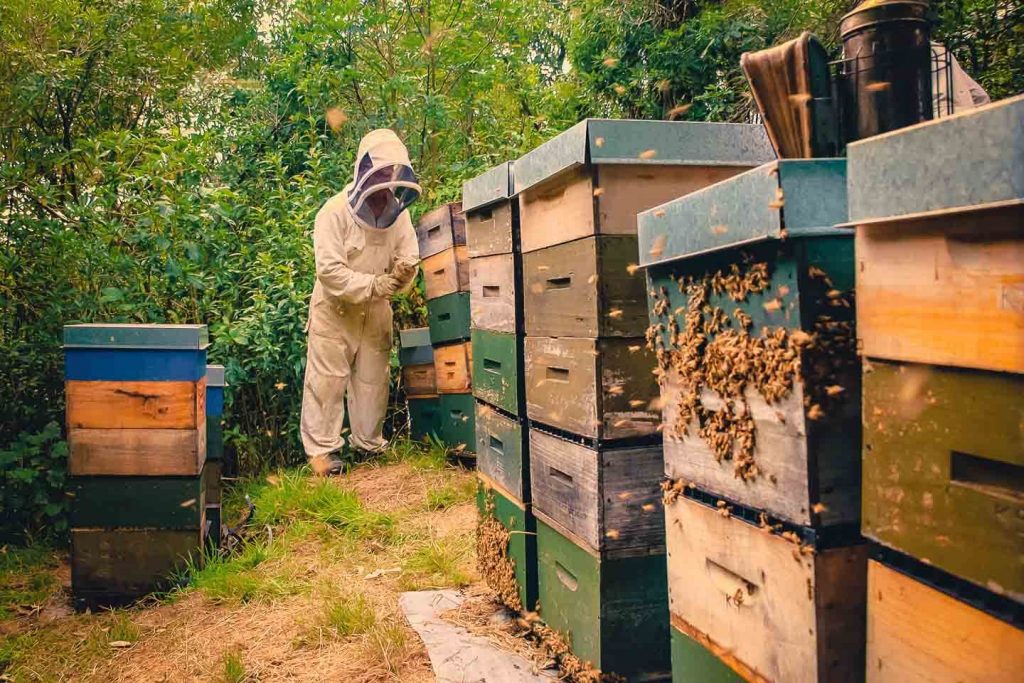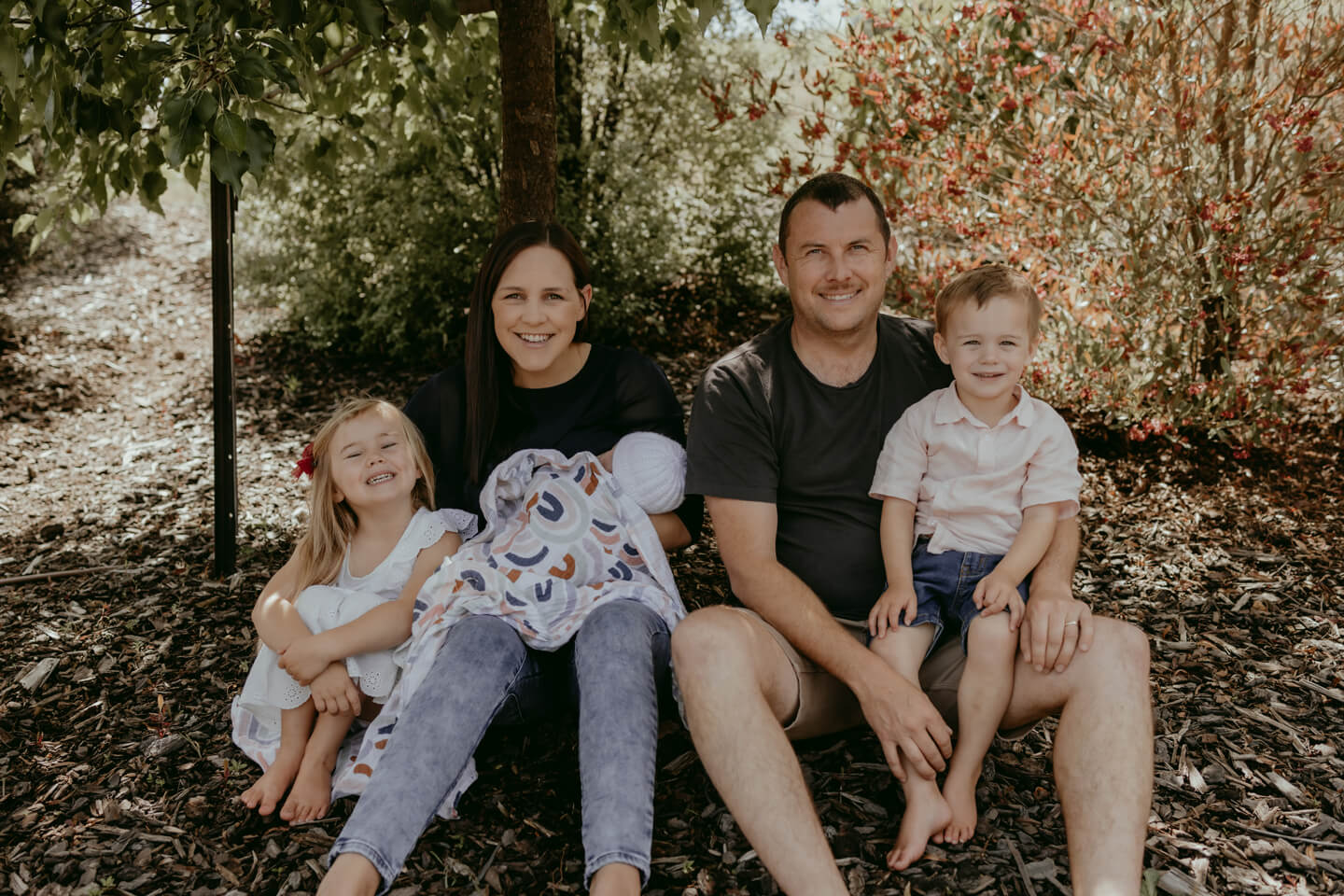All for the Good of the Hive
We never get tired of watching our bees. As beekeepers, we get a special insight into the complex work they do. But one thing never fails to impress us — everything bees do is always for the good of the hive.
Most people think of a bee’s main task as collecting nectar to make honey, but there is so much more going on. Bees have fascinating social structures and incredibly specialised jobs. Individual honeybees cannot survive without the colony, and a healthy hive relies on all the bees working together in a variety of important roles.
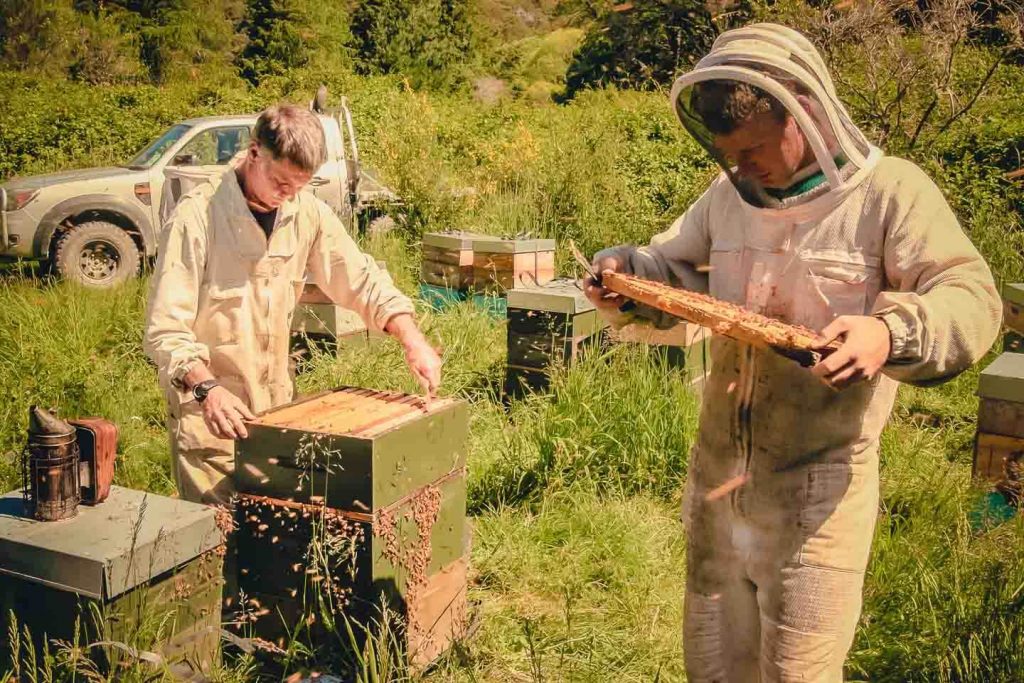
When you see an individual bee flying about, she’s never really alone. She’s actually in constant communication with her hive. Although individuals have different tasks, these are all synchronised and they may change according to the needs of the hive.
Drones definitely have the simplest role. Totally dependent on the workers for food, drones have no stingers, pollen baskets, or wax glands. Yet these male bees eat three times as much as the smaller worker bees. They do have one very important job though — to fertilize the queen during her mating flight.
Compared with drones, the worker bees have much more varied roles. Worker bees actually switch jobs during their lifetimes as needed, to ensure that the hive runs efficiently. They don’t start off as foragers, but work first inside the hive, as nursemaids looking after larvae, cleaners, honeycomb architects, nectar ripeners, pollen packers, hive repairers, defenders and scouts.
Some bees are put in charge of defending the hive and seeing off any threats. Others specialise in keeping the inside of the hives spik and span. A select group is in charge of grooming the queen — feeding her royal jelly and making sure she is healthy and laying lots of eggs.
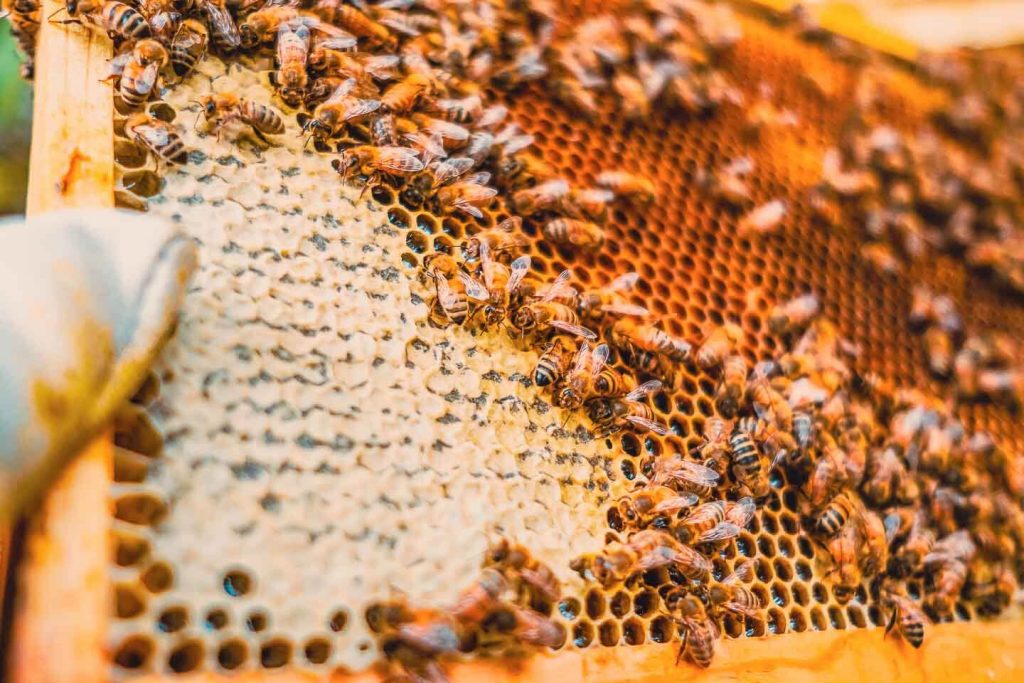
But the queen is not the only one who gets help with her grooming. Bees communicate constantly and are highly attuned to the needs of others. If a bee is itchy she will perform a special dance, attracting the attention of another bee to help groom her.
In the last phase of their lives, the worker bees become foragers. Even then, their work is much more complicated than collecting nectar. Bees collect water to regulate the humidity of the hive and make honey. They also collect pollen, an important protein source, and sticky resins that can be turned into propolis — the cement-like wax that holds the hive together.
In all of these tasks, the busy worker bees must cooperate with the house bees to store and process the results of their foraging.
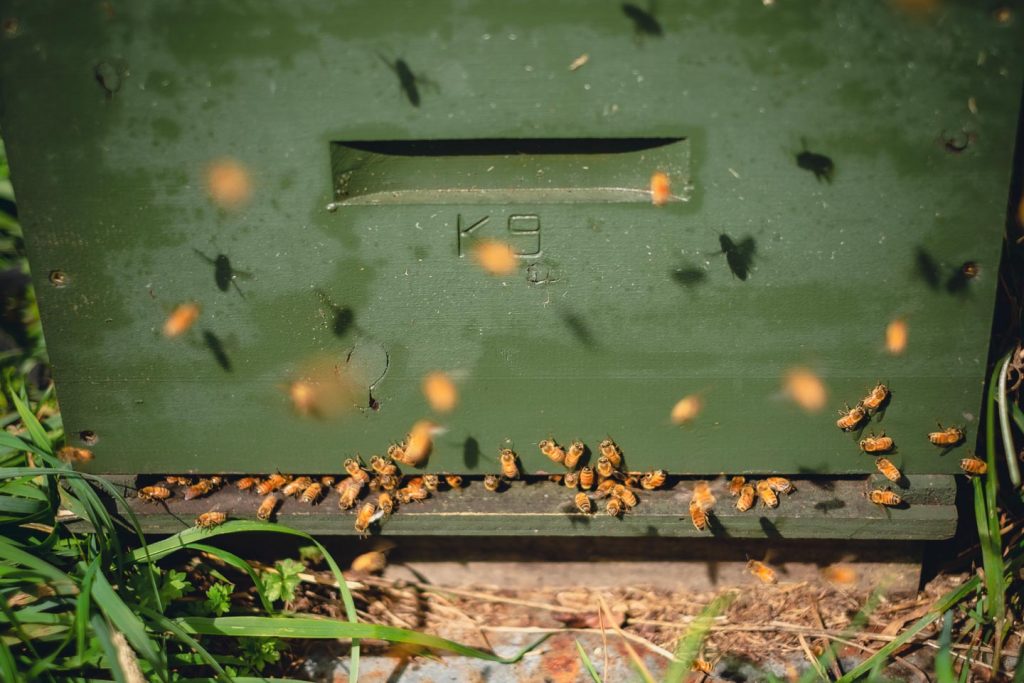
While most worker bees have a lifespan of six weeks, those reared in the autumn can live up to six months. This enables the colony to survive through the winter. Their final job is to help rear the next generations of bees at the beginning of spring.
Bees are the ultimate team players, cooperating in everything they do. They take care of each other as individuals, while keeping the common good of the hive as their main priority. A healthy, productive hive relies on exceptional communication and efficient teamwork.
Bees might be tiny creatures but they have complex brains — as scientists are now starting to understand. With incredible memories, bees adjust to new environments remarkably quickly. At the heart of their success is their complex system of communication using a combination of special ‘waggle’ dances and chemical pheromones. They don’t just share information about where the best flowers are, they can quickly alert every bee in the colony to a threat or changing conditions in the hive.
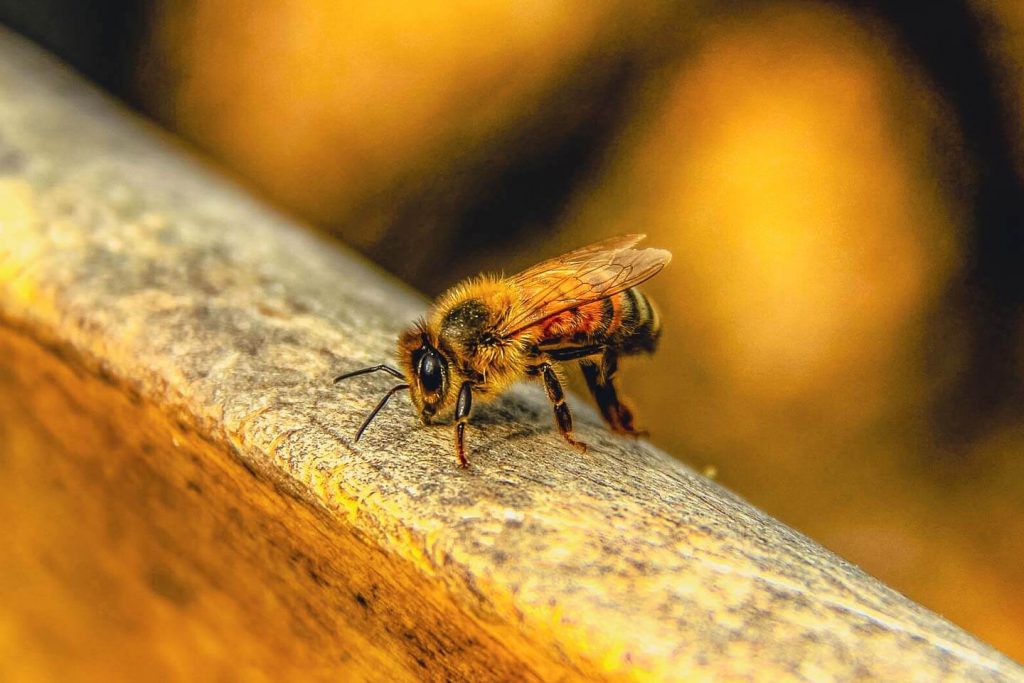
Bees can teach us humans a lot about the important things in life. They show us the importance of caring for communities, working hard, putting aside stores in case of disasters, being flexible and sharing resources and information.
In spite of all their hard work, bees are also very wise, taking little naps when needed. Sometimes that means taking a snooze in a nice comfortable flower. Bees are also very sensible when the weather is bad — they stay snuggled up in their hive and keep each other warm.
We always say it’s the little things that count, and perhaps we learned it from our bees. A healthy hive relies on the tiny actions of every individual bee. We love doing lots of little things to make our bees’ lives happier. We’re not really sure if we’re part of their family or they’re part of ours. In the end, it doesn’t matter — It’s all for the good of the hive.
